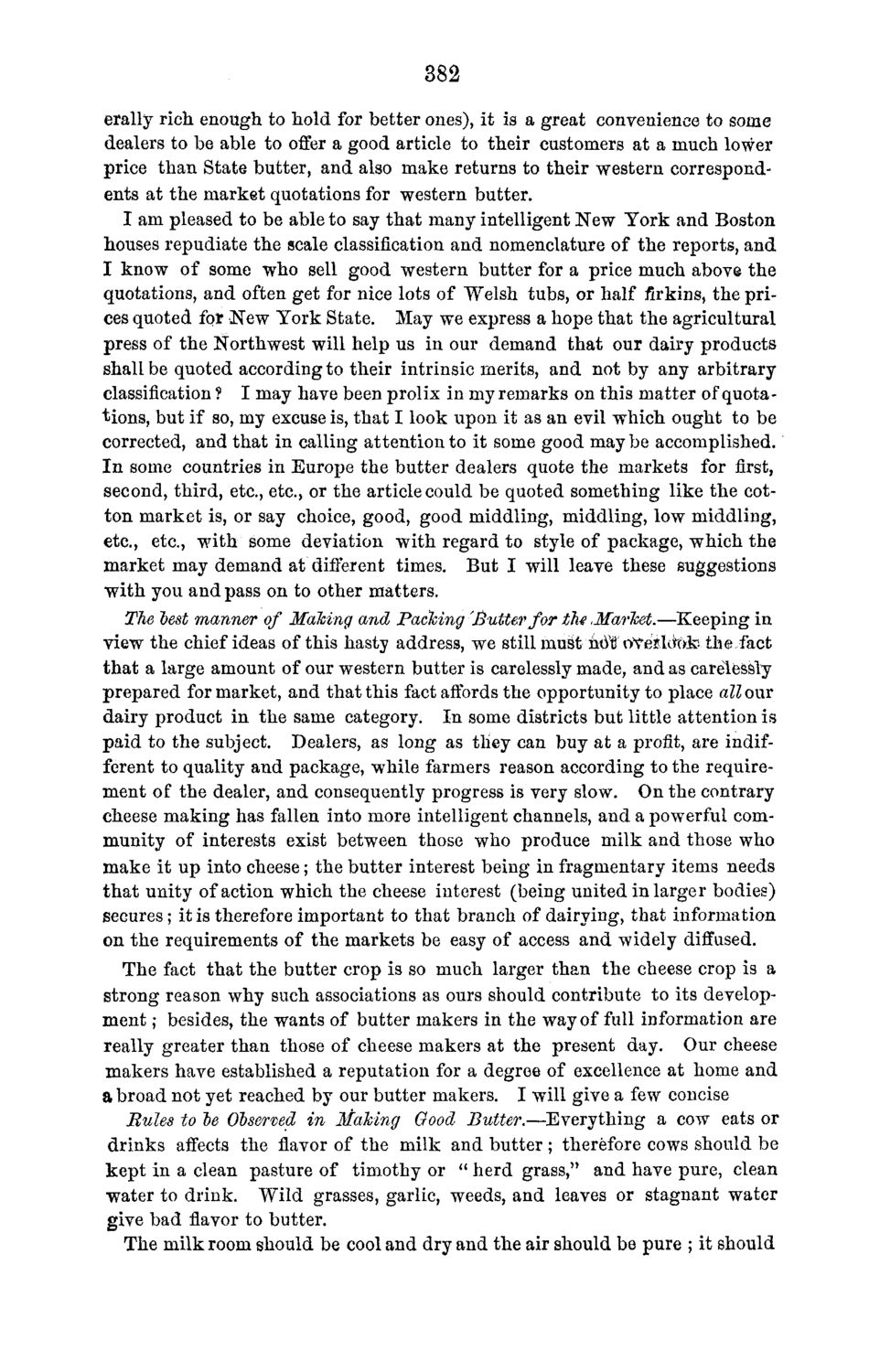| |
| |
Caption: Board of Trustees Minutes - 1870
This is a reduced-resolution page image for fast online browsing.

EXTRACTED TEXT FROM PAGE:
382 erally rich enough to hold for better ones), it is a great convenience to some dealers to be able to offer a good article to their customers at a much lower price than State butter, and also make returns to their western correspondents at the market quotations for western butter. I am pleased to be able to say that many intelligent New York and Boston houses repudiate the scale classification and nomenclature of the reports, and I know of some who sell good western butter for a price much above the quotations, and often get for nice lots of Welsh tubs, or half firkins, the prices quoted fqit New York State. May we express a hope that the agricultural press of the Northwest will help us in our demand that our dairy products shall be quoted according to their intrinsic merits, and not by any arbitrary classification ? I may have been prolix in my remarks on this matter of quotations, but if so, my excuse is, that I look upon it as an evil which ought to be corrected, and that in calling attention to it some good maybe accomplished. In some countries in Europe the butter dealers quote the markets for first, second, third, etc., etc., or the article could be quoted something like the cotton market is, or say choice, good, good middling, middling, low middling, etc., etc., with some deviation with regard to style of package, which the market may demand at different times. But I will leave these suggestions with you and pass on to other matters. The best manner of Making and Packing 'Butter for the Market.—Keeping in view the chief ideas of this hasty address, we still must htftf oYeEl^ofc the fact that a large amount of our western butter is carelessly made, and as carelessly prepared for market, and that this fact affords the opportunity to place all our dairy product in the same category. In some districts but little attention is paid to the subject. Dealers, as long as they can buy at a profit, are indifferent to quality and package, while farmers reason according to the requirement of the dealer, and consequently progress is very slow. On the contrary cheese making has fallen into more intelligent channels, and a powerful community of interests exist between those who produce milk and those who make it up into cheese; the butter interest being in fragmentary items needs that unity of action which the cheese interest (being united in larger bodies) secures; it is therefore important to that branch of dairying, that information on the requirements of the markets be easy of access and widely diffused. The fact that the butter crop is so much larger than the cheese crop is a strong reason why such associations as ours should contribute to its development ; besides, the wants of butter makers in the way of full information are really greater than those of cheese makers at the present day. Our cheese makers have established a reputation for a degree of excellence at home and a broad not yet reached by our butter makers. I will give a few concise Rules to be Observed in Making Good Butter.—Everything a cow eats or drinks affects the flavor of the milk and butter; therefore cows should be kept in a clean pasture of timothy or " herd grass," and have pure, clean water to drink. Wild grasses, garlic, weeds, and leaves or stagnant water give bad flavor to butter. The milk room should be cool and dry and the air should be pure ; it should
| |